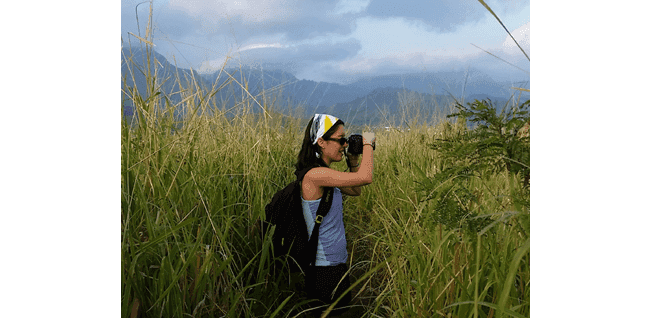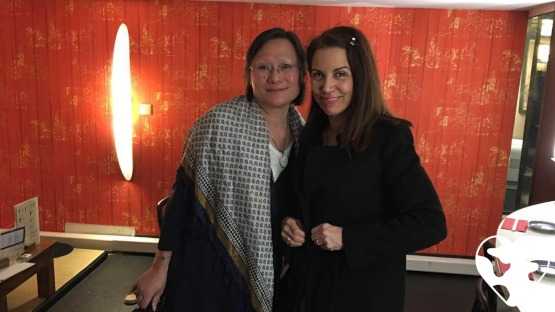Be Humble. Adapt.
Moving to the mainland full time was supposed to be a breeze. Yes, I was moving to the farthest mainland state from my homeland but this is the Bay! Mild weather, lots of cultures intertwined, I already had fellow compatriot friends here, and the food was amazing so, what could go wrong?

My most memorable shock was when my roommate thought my friends were loud when they brought me a traditional parranda (our upbeat version of carols). I was confused thinking “don’t y’all know how to have fun?” Then I realized having fun here was different. It meant carving pumpkins, eating toasted pumpkin seeds, dressing up for Halloween, board games, etc. For me, it was dancing, and being out in the world (love the beach, even when it’s cold…).
All throughout school, I got compliments from my teachers on my English. I’ve been learning it since preschool and my vocabulary and grammar are excellent. So, I thought I was fluent but I had never been immersed in a full-time English speaking academic life. I quickly felt lost. I couldn’t follow some of the professors in class. I had to choose between taking notes and getting lost or trying to listen and hope to remember. I misunderstood exam instructions and I got my worst grades ever. That was a brutal blow to my ego. And don’t get me started with accents … Nothing says “you are not from here” like asking “where are you really from?” I have been living here for 12 years. My accent will not disappear. It is as tough as a plantain stain as we say back home. Can we simply accept everyone has an accent and move past it?
I was also shocked by how few women I found in the chemical engineering department at Berkeley and by how few Latin American and black people I found in the College of Engineering overall. This really messed with my sense of belonging. I wondered “what am I doing here?” many times. My alma mater in Puerto Rico had the highest ratio of women in engineering in the country.

But I failed to see the crumbs left on my path as I was dazed by shock and impostor syndrome. There was a Latino Engineering association which I didn’t join because I wanted to “blend in” and not get singled out. It is called LAGSES, Latino Association of Graduate Students in Engineering and Sciences. It is actually a great resource and I regret not joining. It would have helped me adapt to the researcher expat life. An academic program director suggested I take an English class before the semester started but I claimed I didn’t need it. Taking the class would not have hurt (other than my bare pockets). Silly me…
My main lesson learned was to be humble and listen to the opportunities that life presents and take advantage of each one. While walking around campus, I saw a car sticker that read “Be humble. Adapt” which was a wakeup call reminding me that life will not always go my way and I have to morph myself in order to adapt to circumstances. That has meant a lot of work, pain, and tears but that’s how we grow and not doing it would have left me unaware of my full potential. What made it all worthwhile was finding impactful purpose outside of academia, sharing my lessons with incoming grad students, and watching them succeed
Advertisement
About Diana Rodriguez
Diana was born, raised and educated in Puerto Rico. She loves snorkeling, dancing, hiking, traveling, practicing and learning languages. She thinks kidneys are underappreciated and water is too often taken for granted. However, we can’t live without either. Thus, she volunteers for and supports organizations facilitating access to safe drinking water for underserved communities and hopes to work full-time in this sector in the not-so-distant future. She is a consulting engineer for an international firm. Maybe someday she will get to see the auroras…
Article topics
Related articles
Does Every Language Need a Word for Heimat?
Heimat — the German word for ‘home’ — has a long and complicated history, but is booming again in German popular culture. This article explores this trend and the deeper meanings, good and bad, of the word behind it. Could it be relevant for all expats today — and why?
(Re)Discovering Your Passion Abroad — Diving into the Local Arts and Culture Scene
InterNations member Seraphina Anderson returned to Asia looking for her place in the world. She quickly discovered her passion for the local arts and culture scene in Penang. Read all about how she became a Consul and started introducing expats and global minds to her multicultural city.
Global Career Mobility Needs a Gender Rethink
Women face unique challenges. InterNations member Leslie takes a look at how the conversation must evolve — and why working abroad matters.
To Blow or to Sniff — Culture Shock for an Expat
Do you blow your nose or sniff in public? Your choice might well depend on the country you come from. InterNations member Kaushik shares his experience, and helps to decode a simple action, which really isn’t that simple, when you are an expat.
From 6 Months to 6 Years and Counting
After a tough start of 2015, InterNations member Bryan Johnson decided to move to China for a new, exciting experience. What was supposed to be a short-term teaching assignment became a permanent stay and a once-in-a-lifetime journey. This is Bryan’s story!




